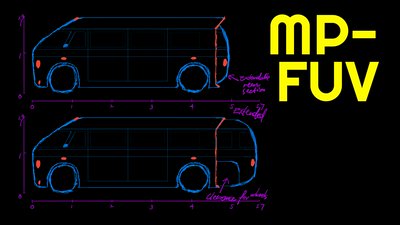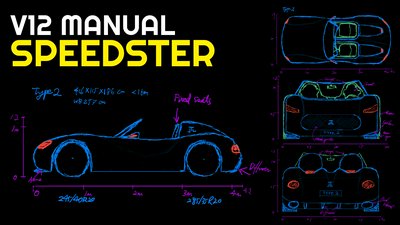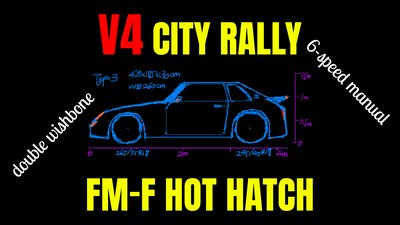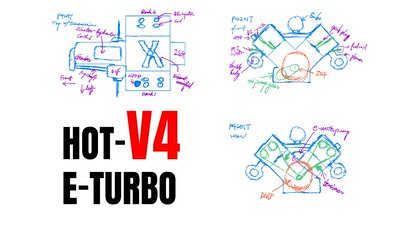techXXX
EA824 vs EA825: Comparing Two Generations of the Audi / Porsche 4.0 TFSI Engine
Consumers commonly confuse the VAG EA824 and EA825 engines with each other. However, the Audi-designed EA824 and the Porsche-Audi EA825 are fundamentally different. Today, I compare the two across eight aspects.
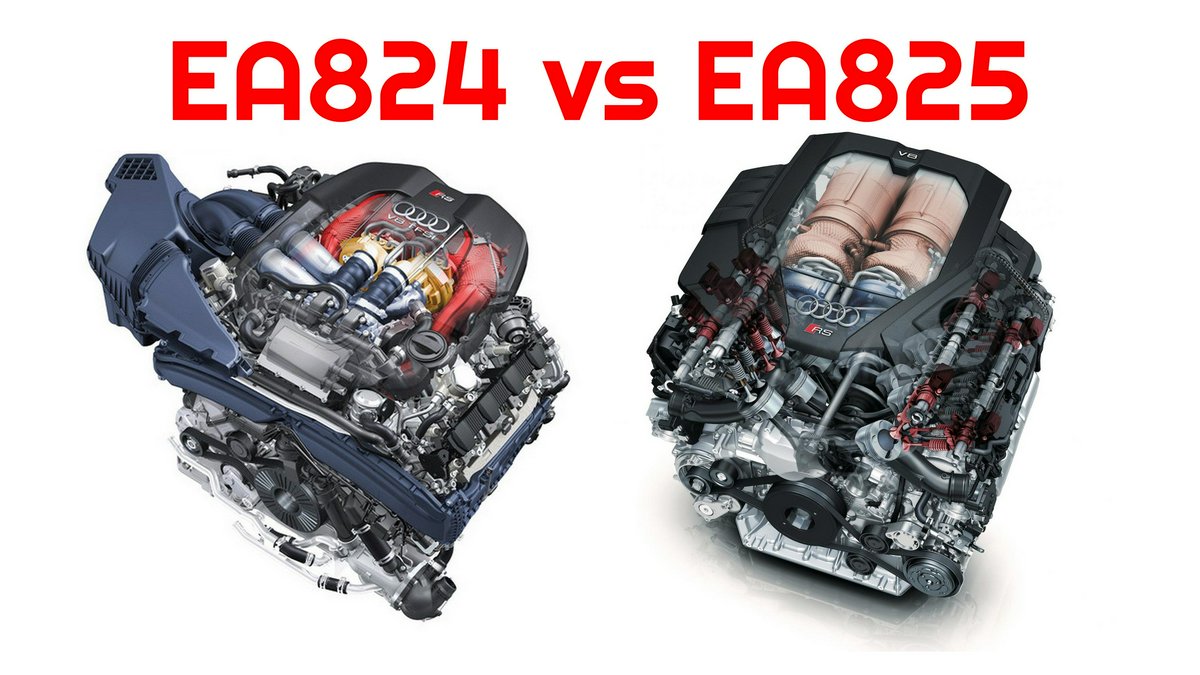
Consumers commonly confuse the VAG EA824 and EA825 engines with each other, as they are both referred to as 4.0 TFSI across the company’s marketing materials. However, the Audi-designed EA824 and the Porsche-Audi EA825 are fundamentally different. Today, I compare the two across eight aspects.
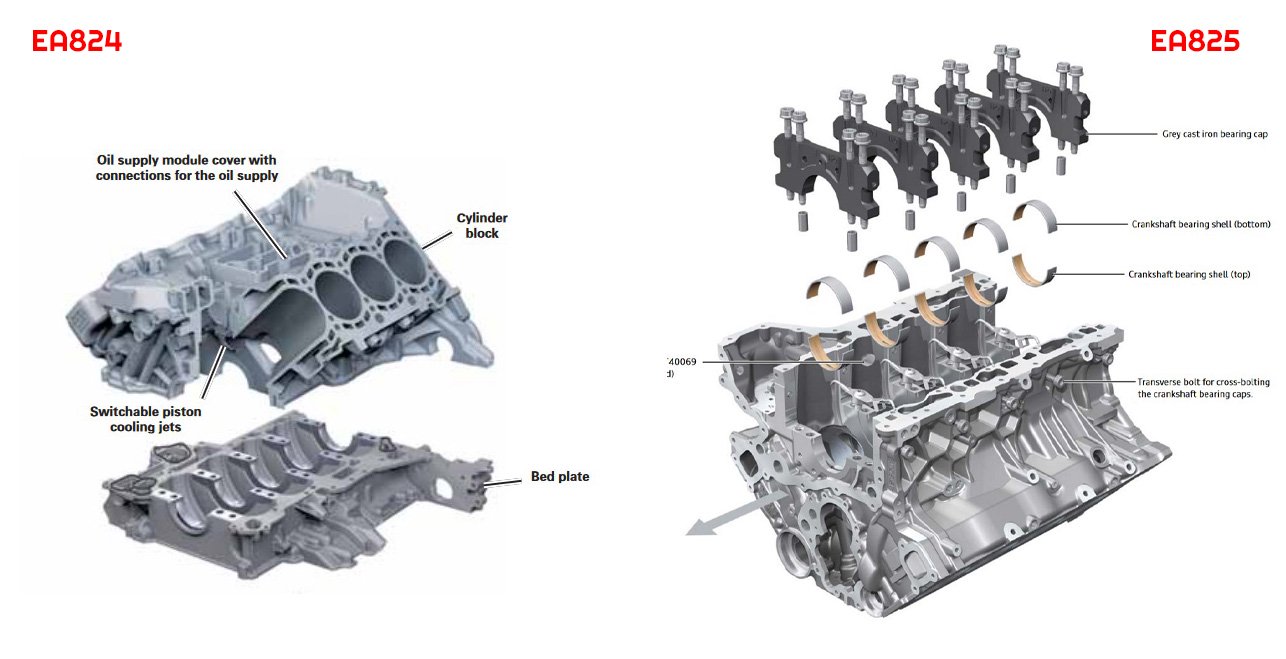
Engine Block
The EA824 block is derived from the 4.2 FSI engine; hence, it is also an Alusil block. A bedplate is bolted onto the block to hold the crankshaft. There are four bolts per main bearing.
In comparison, the EA825 is a eutectic block (only 9% silicon). A layer of iron is deposited onto the cylinder walls using the Atmospheric plasma spraying (APS) process, the same process used by many manufacturers today under different names. The EA825 block is also what is referred to as a “deep skirt” design, meaning that the pistons do not protrude beyond the cylinder walls at bottom dead center. Rather than using a bedplate, the EA825 uses individual six-bolt cast iron bearing caps.
Obviously, the EA825 block is a superior, more durable design.
Pistons
In the EA825, the pistons are asymmetric and are mounted at a 0.5mm offset towards the pressure side. The piston wall is harder and wider on the pressure side, and vice versa on the counter-pressure side. The latter is to adapt better to the shape of the cylinder during operation.
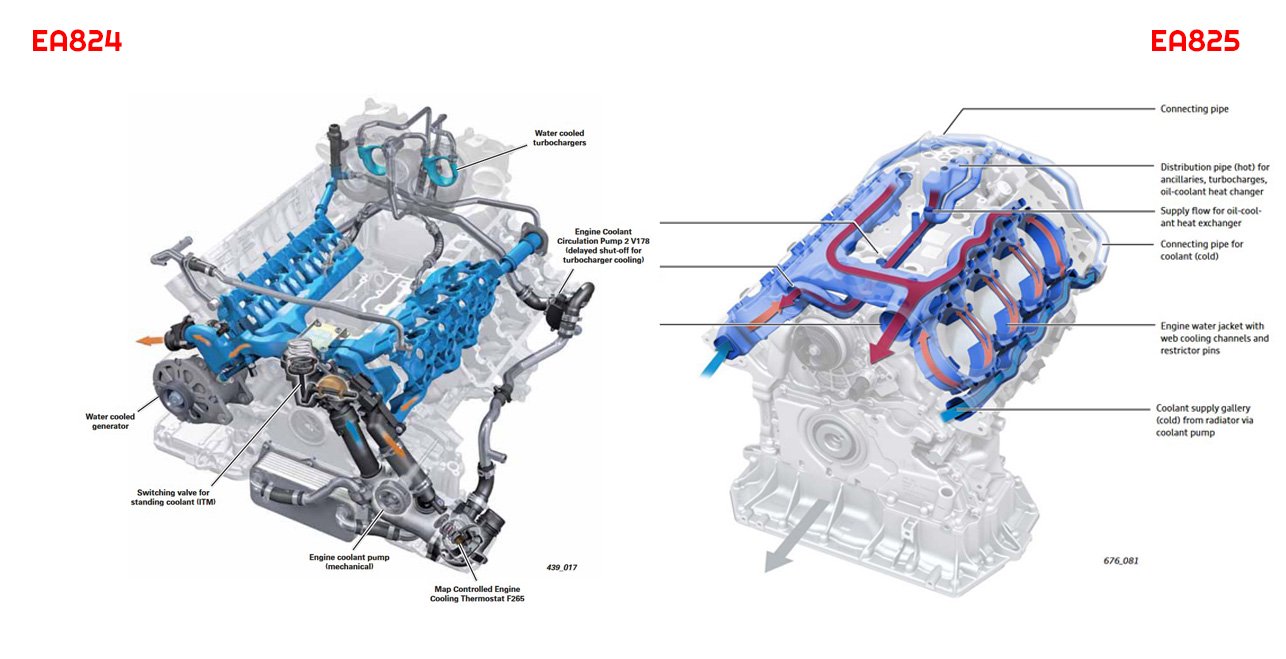
Coolant Circuit
The coolant circuit in the EA824 was adapted for top-mounted intake manifold. Thus, coolant goes from inside the valley to what would normally be the exhaust side. However, the EA824 is a hot-V engine. This means that the coolant first goes to the exhaust side and then returns from the intake side.
As a hot-V engine designed from the ground up, the EA825 has coolant that circulates from the outside, which is now the intake side, to the valley. This is a more reasonable coolant circuit. The design also eliminates many external coolant pipes.
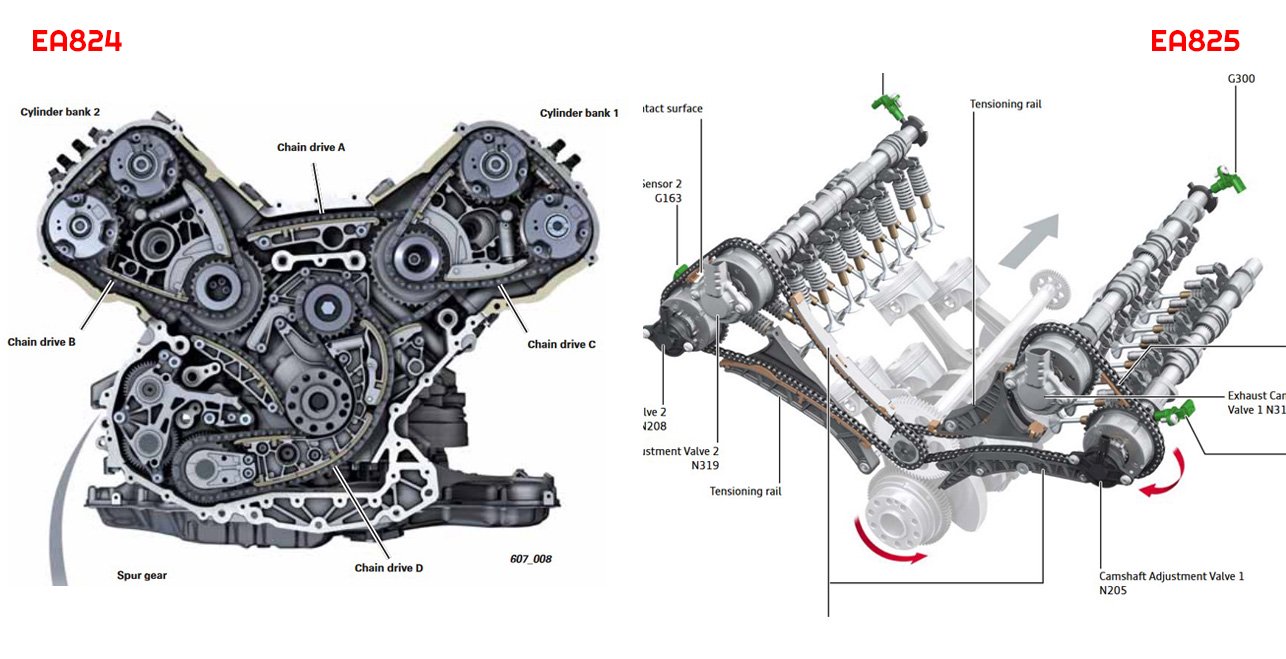
Timing Setup
The timing setup in the EA824 is virtually identical to the 3.2-4.2-5.2 FSI engine family. It is one of the most complex design in automotive history with four timing chains. The EA825, in contrast, uses two chains, one for each bank, driven off an intermediary gear. Both engines use simplex roller chains.
The setup on the EA825 is simpler and more durable.
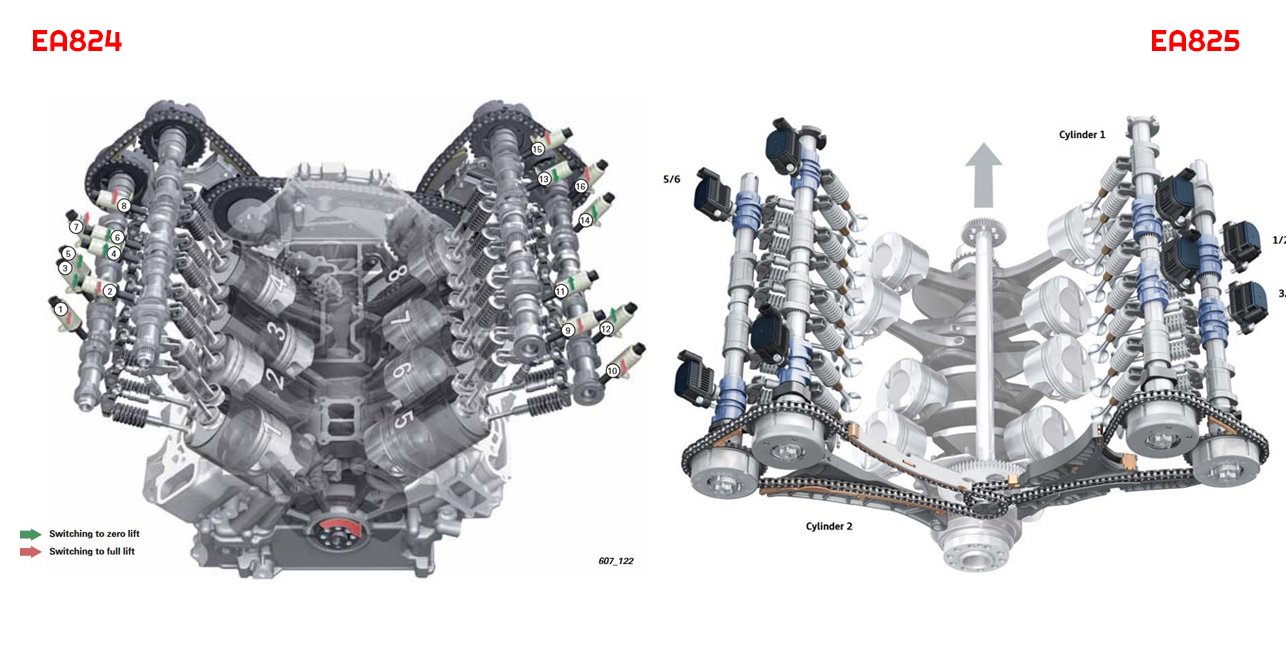
Camshafts & DoD
While both engines have cylinder deactivation that shuts four of the eight cylinders, the EA825 uniquely uses composite camshafts with the cam lobes splined onto the shaft. This way, the engine uses eight actuators instead of sixteen “camshaft adjusting solenoids” as on the EA824 to achieve “Displacement on Demand”.
While the system on the EA825 is simpler, both are inferior to GM’s Dynamic Fuel Management system that can shut 16 combinations of any of the eight cylinders. DFM reduces excess wear caused by cylinder deactivation and can run the engine with 17 patterns down to just two cylinders. I will write about it in detail in future.
Fuel Injection
The high-pressure range on the EA824 is between 20 and 120 bars, with the relief valve opening at 145 bars. On the EA825, the range is up to 250 bars, with the relief valve opening at 300 bars.
On the EA824, the injectors are side-mounted, like many other Volkswagen FSI engines. This was partly responsible for cylinder bore scoring on early FSI designs. On the EA825, the injector is moved to the dome of the combustion chamber next to the spark plug.
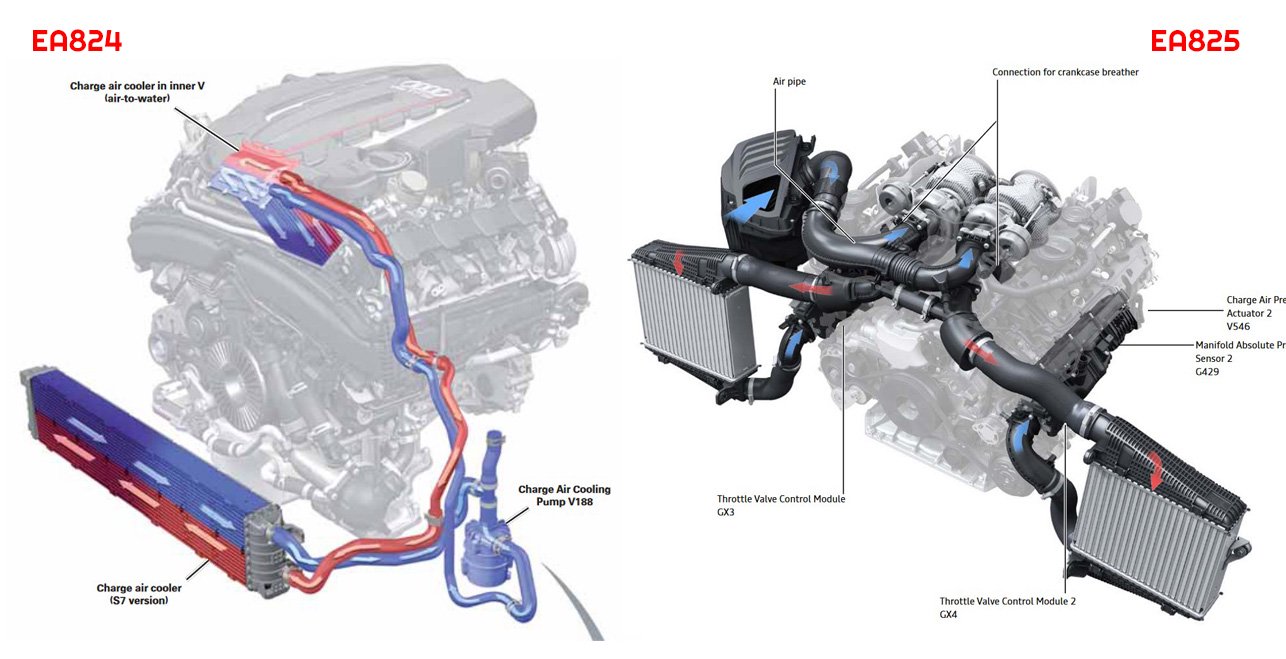
Intercooler
The EA824 uses water-to-air charge air cooling. The EA825 uses two air-to-air intercoolers. Needless to say, the EA825’s system is more efficient and much simpler.
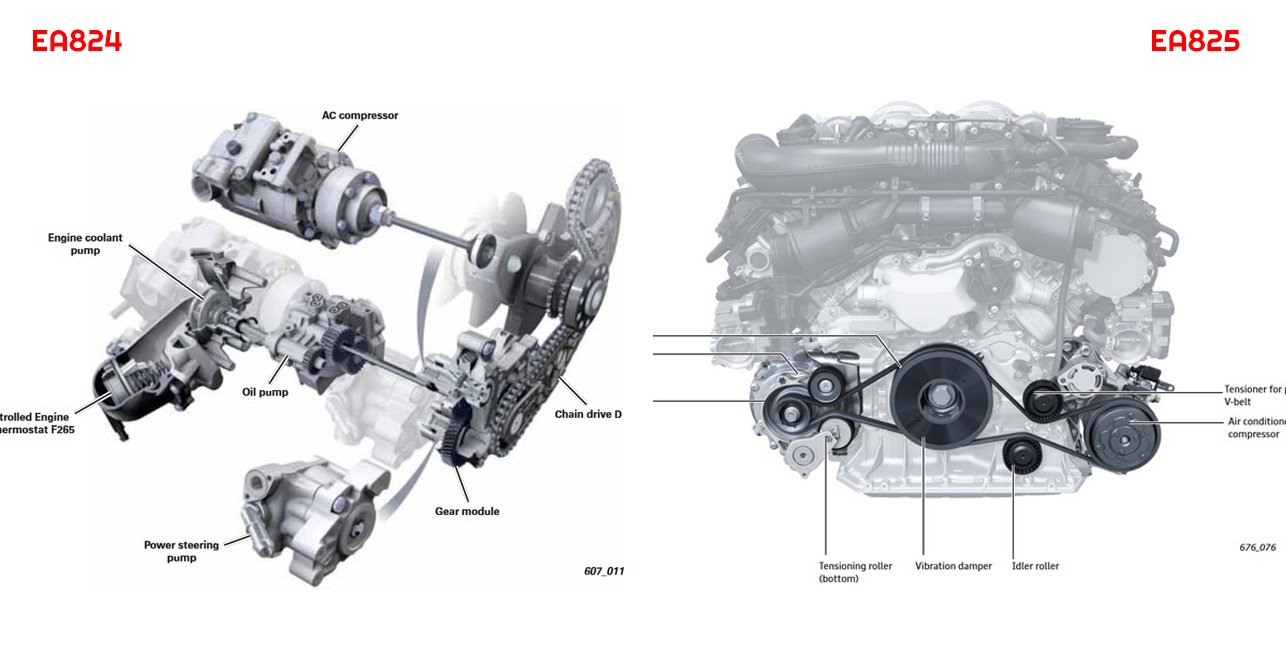
Accessory Drive
Like Audi’s 3.2-4.2-5.2 FSI engines, the EA824 uses the timing chain D to drive the AC compressor, oil pump, and power steering pump. The water pump is then driven off the oil pump. A serpentine belt drives only the alternator.
The EA825 is much simpler, using a serpentine belt to drive the alternator and AC compressor. A more conventional oil pump chain drives the oil pump. The intermediary timing gear, which is part of a shaft to goes through the block, drives the water pump.
Overall, these differences clearly show that the EA825 is a vastly superior design. In fact, the EA824 is about as good as BMW’s N63. For new car purchases, I consider the EA825 to be the best German V8 today, though it is far from the best globally. For used car buyers, it is advisable to avoid direct-injected, turbocharged German V8s altogether. Unfortunately, none of them is reliable.
